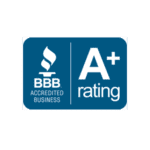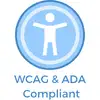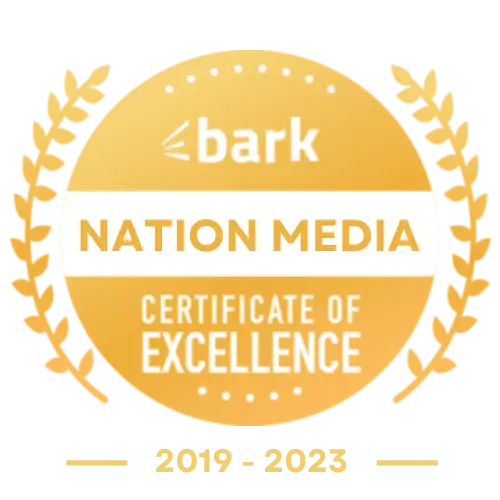Yandex Search Engine Ranking Factors Leaked & Revealed
- Amber Flores
Digital Marketing Manager
What you'll learn?
Nation Media A Top B2B Company
Read time:
- 9 Minutes

It’s been one of the most widely discussed questions in the SEO community for years. What are the ranking factors for Yandex? Well, as it turns out, we don’t have to wonder about that anymore.
One of its employees recently leaked that Yandex’s ranking options are based on these 20 ranking factors, which were just revealed. If you want to know what they are and how Yandex is optimizing your site for them, you’ll surely want to read this article. Let’s discuss together these link-related factors.
Here is the list of the ranking factors of search engines:
#1. Age of links are ranking factors
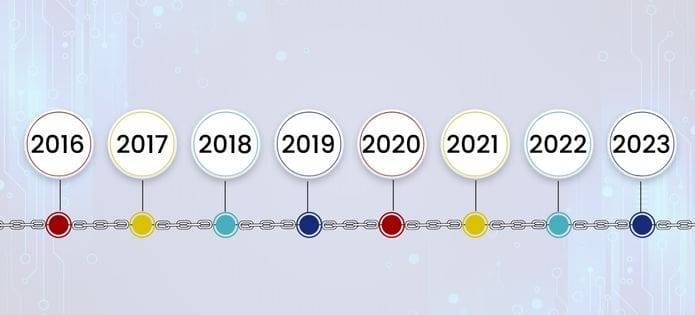
Yandex is going to use the age of your links as ranking factor. So, the longer it has been created, the higher it will be considered in relation to other sites.
Yandex, the leading Russian search engine, has an age of links factor regarding its ranking algorithm. Yandex evaluates the most recent links and updates its search engine ranking for indexed pages.
Yandex’s algorithm puts higher weight on new or recently changed pages or sites than google’s ranking factors. Interestingly, Yandex has also included the age of links factor in its source code (the Yaca classifier).
While Yandex is drastically different from Google in a few areas, this factor seems to overlap and can bring similarities between the two top competitors. Understanding Yandex’s age of links parameter helps SEO professionals optimize the users’ experience more efficiently than ever before.
#2. Traffic and % of organic traffic are ranking factors
Yandex will consider the traffic coming and going from your site. The more traffic your site gets, the higher it’ll be in the search results. Also, the higher percentage of organic traffic received on your site means a ranking boost.
With data recently sourced from Yandex’s leaked source code, it has become evident that traffic and organic share are high-ranking factors regarding platform performance. When this code leak first came to light, SEO professionals had long discussed and investigated the implications of such data.
While opinions were initially divided on how much this data was disclosed and what it actually meant, the data released has enabled various tools and software solutions providers to develop solutions taking traffic into account. This data will enable businesses to effectively target and strategize their content in an effort to amplify visibility.
#3. Numbers in URLs are bad for rankings
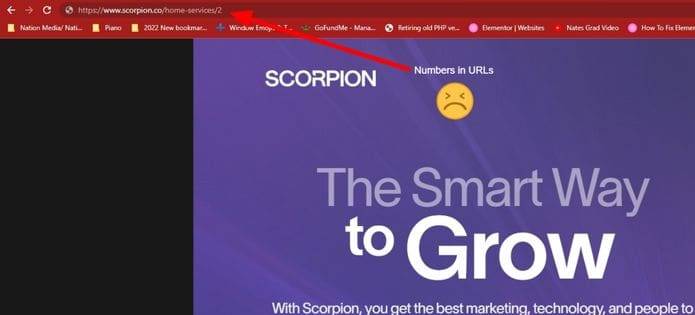
Matt Cutts also stated a while ago that Yandex would penalize you if you have numbers in your URL. So, it’s better to avoid that.
Having numbers in your website’s URLs can significantly affect the data and platform performance. According to the search engine journal, large internet search engines generally don’t crawl pages with numbers as a part of their URL and might recognize them as dynamic parameters instead of helpful content for users.
This can hurt rankings on search engine results pages, making them less visible to potential visitors. If you want your website to perform well on search engine pages, it is best practice to avoid including any numbers in your URLs.
# 4. A lot of slashes in URLs are bad for ranking
It’s not allowed to put a lot of slashes in the URLs of your site because Yandex will consider that an aggressive action. Because of that, it may lower your ranking position.
# 5. Hard pessimization equal PR=0
If you find it difficult to rank in the SERP of Yandex, then it’s a good idea to optimize your site for the possibility of being hard optimized. All the more if you have hard optimization.
With Yandex’s recent source code revelation, data, and platform performance have been brought to the forefront, with companies desperately trying to anticipate any lingering effects on their traffic and user engagement. It seems hard pessimization equals public relation disaster as companies aggressively try to control their search engine result page (SERP) data.
The data leakage could cause some SERPs to see decreases in click rate and conversions, potentially leading to decreased revenue. But while hindsight is 20/20, understanding Yandex’s code leak will help data analysts and SEO professionals plan ahead for similar scenarios in the future.
# 6. Host reliability affects ranking factors

Just like Google or Bing, Yandex is considering the reliability of your host for ranking factors. The higher your host’s reliability, the higher your ranking will be from Yandex.
# 7. Fun fact - there are separate ranking factors for uplifting Wikipedia
This is according to Yandex’s CEO and co-founder. So, he believes that if you are linked to Wikipedia, you’ll have a higher ranking in Yandex.
# 8. A lot of ranking factors connected with user behavior - CTR, last-click, time on site, bounce rate

We have these things in common with the other search engines, but Yandex also considers them.
# 9. Document age and last update both are ranking factors
The older the document is, and the more times it has been updated, the more chance it has of getting a high ranking. And, you guessed it, helps with ranking factors.
# 10. Average domain position across all queries play a roll in ranking factors
If you want to rank well in Yandex, then you’ll have to know the average position of your site in the SERP across all queries. So, when competing with other sites, you’ll know what to expect from average domain ranking.
# 11. Special ranking factors for short videos - Tiktok, shorts, reels

The rankings of short videos in Yandex’s search engine are very strange. It’s believed that the longer the video is, the better chance you have of ranking well in Yandex search engines for ranking factors.
# 12. Keywords in your URL help ranking factors
As we can see from the description – the optimal would be to include up to 3 words from the search query. It affects the ranking algorithm for sure during search queries.
# 13. If your backlinks' anchors contain all words from the keywords - it's good for SEO
Links to sites that contain all the keywords requestor is looking for are considered optimal. It will affect google SEO and Yandex’s search algorithm as well. If it is in one link – it’s more beneficial especially if the order of words is the same.
# 14. Ratio "good" vs "bad" backlinks is a ranking factor

A good way to determine if you have bad links is to compare them with the number of overall links. So, if you have fewer bad backlinks than good ones, then you are fine. It is one of the key ranking factors.
Unfortunately not clarified what exactly it means to be a “good” backlink, but it’s pretty clear.
# 15. The quality rank of texts on the domain is a ranking factor
The quality of texts in the domain is a very important ranking signal. Webmasters should write unique content and links in the anchor text and use the keyword in the domain to attract unique visitors and search-driven traffic.
Pages with low-quality content affect the entire domain and are important search ranking factors.
# 16. Funny, there is a random as a separate ranking factor
If you find it funny and interesting, you’ll get a high ranking in Yandex search ranking factors.
When you don’t understand why some of the pages are on top – it could be random—test behavior factors of Russian tech giant Yandex.
# 17. JS from Google Analytics is a ranking factor
If you are using Google Analytics on your site, then Yandex will consider that. So, it’s better to use a different solution here.
Predictably. Good websites use GA more often than bad websites.
# 18. Advertisements play an integral role in ranking factors
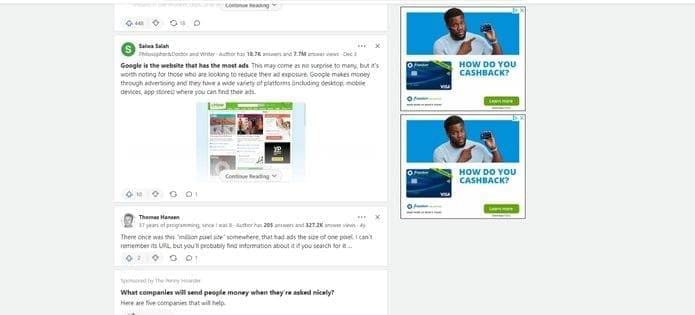
Surprisingly, a big site with lots of ads will get higher rankings especially if the site is not that popular.
Less = better.
# 19. Backlinks from the top 100 best websites by PageRank impacts on rankings
Those sites are highly ranked for PR, and Yandex’s engine favors pages clearly have a better impact on your site – it’ll be higher in the SERP in relationship to others.
# 20. Verified accounts on social networks rank differently from other URLs

Yandex is a modern search engine that checks social accounts to see whether they are real or fake. If they are verified, it’ll be clear that it is an author’s page, and that page will rank higher and get unique visitors, enabling a search engine to rank it higher.
Tip: Important for brand searches – ideally searching your brand, there should be only your domains + verified social networks in the top 10.
Conclusion
So, we now know how Yandex services are used for different ranking signals. We also see why some of the signals are because they consider themselves Google and Bing search engines. We have discussed 20 and revealed critical ranking factors for more information.
However, we must remember that those algorithms are imperfect and can be improved with time. So the next time you want to optimize your site for a new factor – I hope you will do it properly.
Is your website stuck at the bottom of search engine rankings?
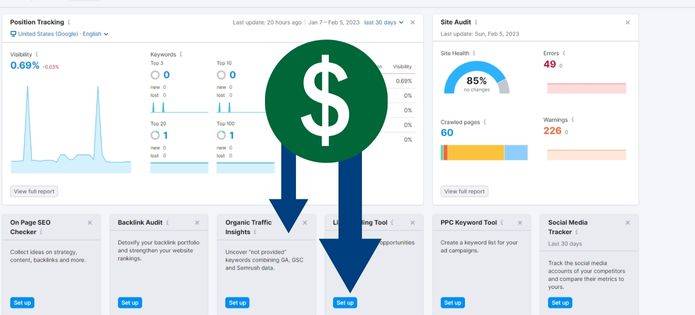
Nation Media specializes in SEO optimization for websites and knows a thing or two about gaining an edge over your competition. Our expansive knowledge covers important ranking factors such as important pages, reliable servers, and optimizing specific SEO terms to help your website stand out from all the rest.
We also provide industry-leading digital marketing insights for a modern presence online. Let us help you determine if your website is ranking and understand the proper factors that go into ensuring successful web results so you can compete effectively with others in the same business.
👍 Nation Medias Helpful Hint...
Table of contents
FAQs
Digital advertising has become even more of a necessity than physical advertising, with customers seeking home services help online. When targeted to the right people as part of your marketing plan, digital advertising can raise brand awareness, boost growth, and provide a roadmap to marketing efforts.
Content marketing is a long-term, long-lasting marketing strategy that requires solid SEO simultaneously. Unfortunately, some teams may not see its value or know how to measure it. That's why this is one of the most asked marketing questions. But excellent content marketing supports all your other digital marketing strategies. For example, when you align your content and SEO strategy with PPC (using our sexy swivel table!), you can unlock significant benefits in both organic and paid media channels. Digital Marketing Agency in Virginia
Digital marketing encompasses all forms of advertising and marketing using the internet, from search engine optimization (SEO) to content marketing, social media and more.
Absolutely! The goal of digital marketing is to improve website traffic and online conversions, thus helping you reach your overall business goals. If you’d like to ultimately increase online sales, we would recommend a variety of tactics to reach this goal. These may range from UX research and conversion rate optimization to advanced product schema to social media. When we’re developing a campaign for a client, we get to know their business and objectives, then propose plans to align with those goals.
Search Engine Optimization, known less formally as SEO in the marketing world, is one of the main ways your website is ranked in answer to search engine inquiries. When you use specific keywords on your site, search engines like Google target those keywords and rank you higher according to the information being sought.Digital Marketing Agency in Virginia
Social media provides a unique platform to actively engage with current and potential clients and build trust and loyalty. Many business owners have joined social media to create ads and engaging posts to promote their companies and spread brand awareness.
Word-of-mouth is no longer effective as the only means of advertising. With the world moving towards a digital market, business owners need to be aggressive about getting their name out there and in front of the local customers that can turn into clients of their business.
Keywords are the words and phrases that searchers use- usually on a search engine. These are the words that we use when looking for pages, images, videos, blogs, any kind of information or content on the web really. These keywords need to be strategically inserted into your pages and content.
A website that sits stagnant for long periods of time, without any new or fresh content, is nothing more that an online brochure for your company. A successful website will interact with consumers and provide new and up to date information and content. Also, in terms of SEO, Google much prefers a website that is consistently updated. There's no specific time limit on updating your website, just make sure it stays relevant.

Call 616-888-5050 or contact us online today for a free evaluation!








